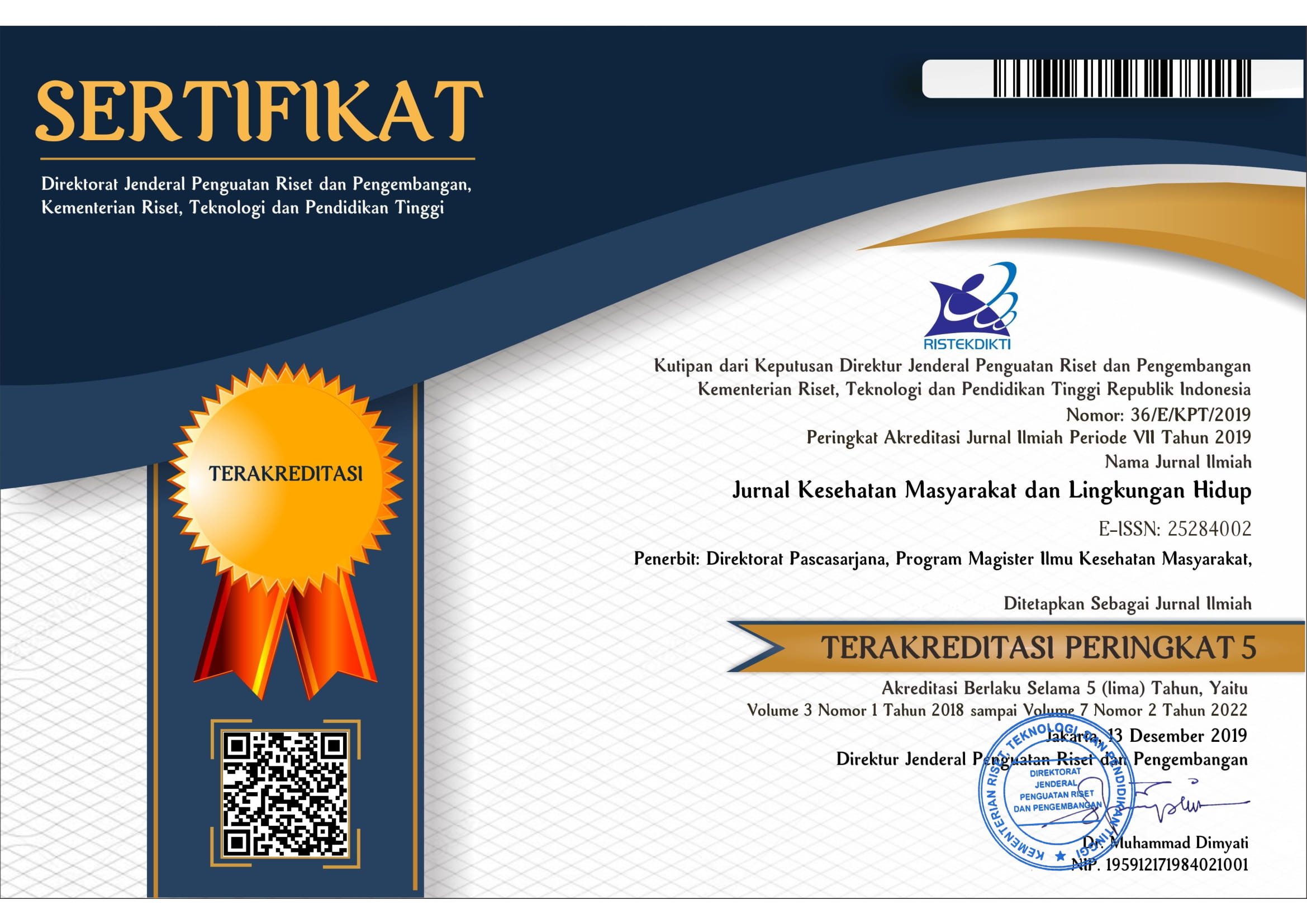The Effect Of Tele Education On Knowledge And Attitudes About HIV/AIDS Prevention In Students At Cut Nyak Dhien Langsa Unggul High School In 2022
DOI:
https://doi.org/10.51544/jkmlh.v7i2.3375Keywords:
knowledge, attitude, tele educationAbstract
According to the World Health Organization (WHO) HIV continues to be a major global public health problem. There are an estimated 38 million people living with HIV at the end of 2019. As a result of concerted international efforts to respond to HIV, service coverage continues to increase. In 2019, 68% of adults and 53% of children living with HIV globally were receiving antiretroviral therapy. In 2019, 68% of adults and 53% of children living with HIV globally were receiving lifelong antiretroviral therapy (ART), yet 7.1 million people living with HIV did not know they had HIV. And because of gaps in HIV services, 690,000 people died from HIV-related causes in 2019 and 1.7 million people were newly infected (WHO, 2020.). This study used a quasi-experimental method with a pre-test and post-test one group only design. Samples were taken as many as 33 people. Data collection was carried out using a questionnaire. Sampling was carried out using the Total Sampling method. The results of the study using Paired t-test obtained P-Value 0.000 there was a significant difference in the average increase in knowledge scores about HIV/AIDS prevention where the average knowledge of students before tele education was 8.636 and the average student/I after tele education was 12,424 so that the difference between changes before and after tele education was 3,788, where the average attitude of students before tele education was 49,697 and the average student/I after tele education was 62,030 so that the difference between changes before and after tele education is 12,333. It is hoped that health promotion efforts for students are carried out more creatively by using different media as an effort to increase students' knowledge and attitudes as primary prevention in adolescents.
Downloads
References
Arikunto, S., (2010). Research Procedure A Practical Approach. Jakarta: Rineka Cipta.
Asfar, A. (2018). The Effect of Health Counseling on Knowledge Levels and Attitudes About HIV/AIDS in Baznas Junior High School, South Sulawesi Province. Journal of Islamic Nursing Vol.3 No.1. 26-31.
Hartati, Irma. (2016). The Influence of Discussion Methods With Video and Slide Media About HIV/AIDS in Increasing Adolescent Knowledge and Attitudes at MAN Kp.Teungoh Langsa City. Thesis. University of Northern Sumatra.
Hidayati, et al. (2019). HAIV/AIDS Management. Up-to-date, Comprehensive and Multidisciplinary. Airlangga University Press. Surabaya.
Husaini, et al, (2017). The Effect of HIV/AIDS Counseling on Knowledge and Attitudes About HIV/AIDS Students of the Banjarbaru Midwifery Academy. Health Research Bulletin Vol. 45, No. 1
Infodatin. (2020). HIV AIDS. Data and Information Center of the Indonesian Ministry of Health.
Juliansyah, Elvi. (2020). The Effect of HIV/AIDS Counseling on Knowledge and Attitudes of Students of SMA Negeri 1 Sepauk, Sintang Regency. VISIONS, Vol. 19 No.1.
Khofiyah, N. (2018). The Effect of Education About HIV/AIDS on Attitudes to Prevent HIV/AIDS in Adolescents. Indonesian Journal of Midwifery Research Vol 2, No. 1.
Kusnan, et al. (2020). The Effect of HIV/AIDS Counseling on Increasing Knowledge and Attitudes of School Students, Journal of Health Sciences, 13(01).
Mukti, GA. (2018). Pengaruh Peer Education Terhadap Pengetahuan Dan Sikap Remaja Tentang HIV/AIDS dI SMA N 1 Kretek Bantul Tahun 2018.
Pure., et al., (2016). Living with HIV-AIDS. Central Jakarta: Spiritia Foundation.
Notoatmodjo, S. (2012). Health Promotion and Health Behavior. Jakarta: Rineka Cipta.
Notoatmodjo. (2014). Health Research Methods. Jakarta : Rineka Cipta.
Noviana, N., (2013). Lecture Notes on Reproductive Health & HIV-AIDS. Jakarta: Trans Info Media.
Nurmala., et al., (2018). Health Promotion. Surabaya: Airlangga University Press.
Saadong, D. (2018). The Influence of Health Education on Adolescent Knowledge About HIV/AIDS Prevention in Mutiara Ilmu Makassar Computer Vocational School. Health Media Makassar Health Polytechnic Vol. XIII No. 2.
Safitri, UD. (2017). Stigma of the people of Jombang Regency about HIV/AIDS. Cendikia Medika Human Health College.
Sugiyono. (2018). Quantitative and Qualitative Research Methods and R & D. Bandung: Alfabeta.
WHO. (2020). HIV/AIDS. https://www.who.int/health-topics/hiv-aids#tab=tab_1.
Widarma, IGH., et al. (2017). The Effect of Health Counseling on Adolescent Knowledge About HIV/AIDS in Bandung Regency. BSI Journal of Nursing, Vol.5 No.1
Praktinya, A (2013). Fundamentals of Medical and Health Research Methodology. PT. Raja Grafindo Persada.
Hulu, Viktor Trismajaya and Sinaga T.R (2019). Analysis of SPSS and Statcal Applications of Parametric Statistical Data (an Introduction to Health) (J. Simarmata (ed); Issue 1). Our Writing Foundation.
Downloads
Published
How to Cite
Issue
Section
License
Copyright (c) 2022 JURNAL KESEHATAN MASYARAKAT DAN LINGKUNGAN HIDUP

This work is licensed under a Creative Commons Attribution-ShareAlike 4.0 International License.














